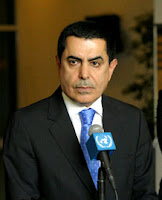By Carolyn Bennett including editing re-reporting
That is the air and attitude Chisholm and Schroeder endured in the 1960s, 70s and 80s. Taking her seat in Congress four years after Chisholm, Schroeder said, “We had no women anywhere:
[n]o women pages,
[n]o women at the doorkeeper’s office, in the parliamentarian’s office,
[n]o women Capitol Police.
“You couldn’t go into the gym, where a lot of deals were cut—couldn’t even go out on the balcony, which is off the Speaker’s office. ...

 The nostalgists on the political left, center and right are
wrong. Those were not “good days.” They were tough. But some of the most courageous
women rose in those bad ole days. They took the baton and led ably, and with unparalleled
humanity.
The nostalgists on the political left, center and right are
wrong. Those were not “good days.” They were tough. But some of the most courageous
women rose in those bad ole days. They took the baton and led ably, and with unparalleled
humanity. Before her election to the U.S. Congress in 1968, Chisholm was a member of the New York State Legislature (1964). In the 1950s she was an educator: director of the Hamilton-Madison Child Care Center (1953-1959); educational consultant for the Division of Day Care (1959-1964).
 This outstanding American former politician, educator and author (b.
November 30, 1924 – d. January 1, 2005) represented New York for seven congressional terms in the U.S. House
of Representatives. She was the first African American woman elected to
Congress, the first major-party black candidate for President of the United
States and the first woman to run for the Democratic presidential nomination (Margaret Chase Smith of Maine, well known
for anti-McCarthyism “Declaration of Conscience,” had previously run for the
Republican presidential nomination).
This outstanding American former politician, educator and author (b.
November 30, 1924 – d. January 1, 2005) represented New York for seven congressional terms in the U.S. House
of Representatives. She was the first African American woman elected to
Congress, the first major-party black candidate for President of the United
States and the first woman to run for the Democratic presidential nomination (Margaret Chase Smith of Maine, well known
for anti-McCarthyism “Declaration of Conscience,” had previously run for the
Republican presidential nomination).78 women in the U.S. House of Representatives and
17 women in the U.S. Senate
- •Sandra (Sandy) Adams (Republican, FL)
- •Michele Bachmann (Republican, MN)
- •Tammy Baldwin (Democrat, WI)
- •Karen Bass (Democrat, CA)
- •Shelley Berkley (Democrat, NV)
- •Judy Borg Biggert (Republican, IL)
- •Diane Black (Republican, TN)
- •Marsha Blackburn (Republican, TN)
- •Suzanne Bonamici (Democrat, OR)1
- •Mary Bono Mack (Republican, CA)
- •Madeleine Z. Bordallo (Democrat, GU)
- •Corrine Brown (Democrat, FL)
- •Ann Marie Buerkle (Republican, NY)
- •Shelley Moore Capito (Republican, WV)
- •Lois Capps (Democrat, CA)
- •Kathy Castor (Democrat, FL)
- •Donna M. Christensen (Democrat, VI)
- •Judy Chu (Democrat, CA)
- •Yvette D. Clarke (Democrat, NY)
- •Susan A. Davis (Democrat, CA)
- •Diana L. DeGette (Democrat, CO)
- •Rosa DeLauro (Democrat, CT)
- •Donna F. Edwards (Democrat, MD)
- •Renee Ellmers (Republican, NC)
- •Jo Ann Emerson (Republican, MO)
- •Anna Georges Eshoo (Democrat, CA)
- •Virginia Foxx (Republican, NC)
- •Marcia L. Fudge (Democrat, OH)
- •Gabrielle Giffords (Democrat, AZ)2
- •Kay Granger (Republican, TX)
- •Janice Hahn (Democrat, CA)
- •Colleen Hanabusa (Democrat, HI)
- •Jane F. Harman (Democrat, CA)3
- •Vicky Hartzler (Republican, MO)
- •Nan Hayworth (Republican, NY)
- •Jaime Herrera Beutler (Republican, WA)
- •Mazie Hirono (Democrat, HI)
- •Kathleen C. Hochul (Democrat, NY)4
- •Sheila Jackson Lee (Democrat, TX)
- •Lynn Jenkins (Republican, KS)
- •Eddie Bernice Johnson (Democrat, TX)
- •Marcia C. (Marcy) Kaptur (Democrat, OH)
- •Barbara Lee (Democrat, CA)
- •Zoe Lofgren (Democrat, CA)
- •Nita M. Lowey (Democrat, NY)
- •Cynthia M. Lummis (Republican, WY)
- •Carolyn B. Maloney (Democrat, NY)
- •Doris Matsui (Democrat, CA)
- •Carolyn McCarthy (Democrat, NY)
- •Betty McCollum (Democrat, MN)
- •Cathy McMorris Rodgers (Republican, WA)
- •Candice Miller (Republican, MI)
- •Gwen Moore (Democrat, WI)
- •Sue Myrick (Republican, NC)
- •Grace Flores Napolitano (Democrat, CA)
- •Kristi Noem (Republican, SD)
- •Eleanor Holmes Norton (Democrat, DC)
- •Nancy Pelosi (Democrat, CA)
- •Chellie Pingree (Democrat, ME)
- •Laura Richardson (Democrat, CA)
- •Martha Roby (Republican, AL)
- •Ileana Ros-Lehtinen (Republican, FL)
- •Lucille Roybal-Allard (Democrat, CA)
- •Linda T. Sánchez (Democrat, CA)
- •Loretta Sanchez (Democrat, CA)
- •Janice Schakowsky (Democrat, IL)
- •Jean Schmidt (Republican, OH)
- •Allyson Schwartz (Democrat, PA)
- •Terri Sewell (Democrat, AL)
- •Louise M. Slaughter (Democrat, NY)
- •Jackie Speier (Democrat, CA)
- •Betty Sutton (Democrat, OH)
- •Nicola S. (Niki) Tsongas (Democrat, MA)
- •Nydia M. Velázquez (Democrat, NY)
- •Debbie Wasserman Schultz (Democrat, FL)
- •Maxine Waters (Democrat, CA)
- •Frederica Wilson (Democrat, FL)
- •Lynn C. Woolsey (Democrat, CA)
- •Kelly Ayotte (Republican, NH)
- •Barbara Boxer (Democrat, CA)
- •Maria E. Cantwell (Democrat, WA)
- •Susan Margaret Collins (Republican, ME)
- •Dianne Feinstein (Democrat, CA)
- •Kirsten Gillibrand (Democrat, NY)
- •Kay Hagan (Democrat, NC)
- •Kathryn Ann Bailey Hutchison (Republican, TX)
- •Amy Klobuchar (Democrat, MN)
- •Mary Landrieu (Democrat, LA)
- •Claire McCaskill (Democrat, MO)
- •Barbara Ann Mikulski (Democrat, MD)
- •Lisa Murkowski (Republican, AK)
- •Patty Murray (Democrat, WA)
- •Jeanne Shaheen (Democrat, NH)
- •Olympia Jean Snowe (Republican, ME)
- •Deborah A. Stabenow (Democrat, MI)
http://www.watcha-want.com/Good-Ole-Days.html
Bennett's books are available in New York State independent bookstores: Lift Bridge Bookshop: www.liftbridgebooks.com [Brockport, NY]; Sundance Books: http://www.sundancebooks.com/main.html [Geneseo, NY]; Mood Makers Books: www.moodmakersbooks.com [City of Rochester, NY]; Dog Ears Bookstore and Literary Arts Center: www.enlightenthedog.org/ [Buffalo, NY]; Burlingham Books – ‘Your Local Chapter’: http://burlinghambooks.com/ [Perry, NY 14530]; The Bookworm: http://www.eabookworm.com/ [East Aurora, NY] • See also: World Pulse: Global Issues through the eyes of Women: http://www.worldpulse.com/ http://www.worldpulse.com/pulsewire http://www.facebook.com/#!/bennetts2ndstudy





























